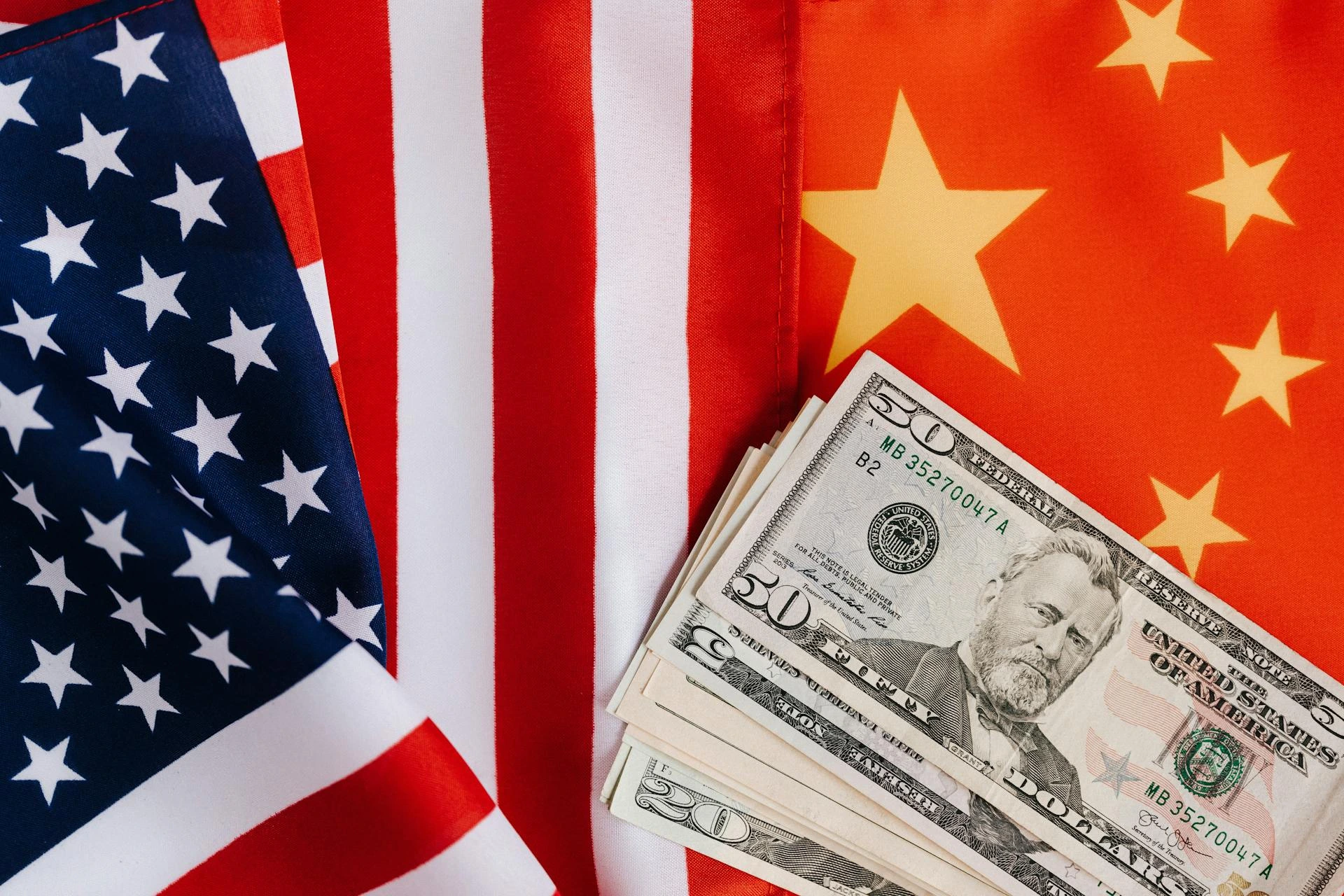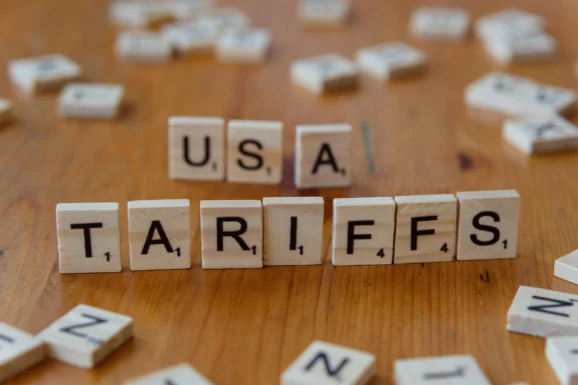Tariffs and the American dilemma: old tools, new tensions

Mike Bedenbaugh
- Published
- Opinion & Analysis

In this timely analysis, our U.S political correspondent Michael Bedenbaugh traces the rise of tariffs from their Hamiltonian origins to their modern role as a blunt instrument of nationalist politics. Drawing on personal experience and the economic fallout in his native South Carolina, he examines how trade policy has become a source of domestic division and international concern, and why Europe should be paying close attention
In America today, the word “tariff” carries more weight than it should, and far more emotion than it used to. What once was a debate over revenue policy has become a fault line in both our economy and our friendships. I know this personally. A close friend of mine, someone I’d known for over 30 years. stopped speaking to me over my criticism of President Trump’s first wave of tariffs. He hung up the phone, and I haven’t heard from him since.
For many of us, tariff policy isn’t just about trade but about who we are, what we believe in, and how we see the world. And that, more than any import tax or supply chain disruption, is what should concern our European allies.
To understand the roots of our current trade tensions, it helps to remember that the United States was, in many ways, built on tariffs. Long before we had an income tax, tariffs were the primary source of federal revenue. In fact, the very first major piece of legislation passed by the U.S. Congress in 1789 was the Tariff Act, which was designed both to raise funds and to protect our fragile domestic industries.
Alexander Hamilton, our first Treasury Secretary, argued that “moderate duties” would nurture America’s manufacturing base and ensure independence from Europe. Tariffs became a tool of both economic development and national sovereignty. But they also became a source of deep division.
In 1828, the so-called “Tariff of Abominations” nearly shattered the Union. Southern states, especially South Carolina, believed the tariffs unfairly benefited Northern manufacturers at their expense. The resulting Nullification Crisis marked one of the first major constitutional showdowns over federal authority versus state sovereignty.
Tariffs were never just technical but existential. And in that sense, Donald Trump’s use of them isn’t new. It’s a revival of an old American impulse: to define national strength through economic self-sufficiency, even if it strains our alliances.

To understand why so many Americans, particularly in my home state of South Carolina, support Trump’s trade rhetoric, even when it alienates allies, you have to understand the scars left by NAFTA.
In the 1990s, when the North American Free Trade Agreement (NAFTA) was signed, many of us were told it would open markets and create prosperity. But in towns across South Carolina, where entire communities were built around cotton mills and textile factories, it felt more like betrayal. Ross Perot, the presidential candidate who ran as an independent in 1992, warned of a “giant sucking sound” as jobs and capital left the United States. He was right.
Company executives picked up and moved their operations to Mexico, the Caribbean, and beyond, chasing lower labor costs and leaving behind broken towns. Mills that once supported entire economies were shuttered. At best, some were converted into loft apartments or breweries. At worst, they were demolished for their historic bricks and timbers, leaving behind poisoned brownfields where livelihoods used to grow.
You can still walk into these communities and see black-and-white photographs of full parking lots, children riding bikes down safe streets, churches filled with workers and their families. Now, many of those places are marked by low-income rentals, addiction, underemployment, and a constant sense that something vital was taken.
So when people in these towns hear a politician talk about standing up to foreign competition, about bringing industry back, about tariffs, they listen. This isn’t because they hate Europe or Asia or even globalisation itself, but because they remember the sting of promises broken.
For much of the 19th century, tariff debates dominated U.S. politics. But by the 20th century, especially after the Great Depression and World War II, American trade policy shifted toward liberalisation and multilateralism. We helped lead the creation of GATT, then the WTO. We negotiated NAFTA and backed the expansion of free trade across the world.
But that consensus began to crumble after 2000. And the election of Donald Trump in 2016 was a symptom, rather than the cause, of a deep distrust in global trade. For many, his blunt talk about bad deals and unfair partners was a long-overdue correction.
But here’s where it went off the rails.
Instead of a strategic, transparent policy approach, we saw a personalised, chaotic model emerge. Trump used tariffs not as a last resort, but as a first move. No allies were spared, including Canada, Germany, Japan, South Korea. This wasn’t Hamiltonian protectionism but transactional brinkmanship.

Just this week, President Trump extended a deadline for imposing new “reciprocal tariffs” to August 1st. These proposed duties, ranging from 25 to 40 per cent on certain imports, threaten not just economic disruption but diplomatic strain.
There’s another layer here and one many Europeans may not see from abroad. Under the U.S. Constitution, only Congress has the authority to impose tariffs. Article I, Section 8 clearly states that Congress, not the President, shall have the power “to lay and collect duties.”
But over the past century, Congress has increasingly delegated this power to the Executive Branch, using laws like the Trade Expansion Act of 1962 and the Trade Act of 1974. These laws gave the president leeway to respond to emergencies or negotiate quickly but they’ve also eroded the checks and balances that were supposed to guard against exactly this kind of unilateral economic disruption.
Today, presidents can impose sweeping tariffs by citing vague justifications like “national security” or “unfair trade.” Congress, the branch closest to the people, is mostly silent.
And when Congress goes quiet, the people lose their voice.
What amazes many of us is how deeply misunderstood trade itself has become. We are a consumer-driven economy, yet many Americans look at trade deficits with other countries as if we’re somehow “losing.” But I’m not losing anything when I go to the store and buy green grapes from Chile in February. I traded my dollars for grapes and I’m happy with that deal.
The same is true across the economy. We import what we need, export what we can, and our consumption keeps the entire global system running.
And let’s not even talk about what an iPhone would cost if it were made entirely in the United States, especially after expelling the very people who would work in those factories.
Free trade has its challenges, yes, but oversimplifying the problem doesn’t solve it. It just feeds the illusion that we can go it alone without consequences.
Why This Matters to Europe
Our European partners have every right to be concerned. The tone of U.S. trade policy, especially when it becomes punitive and unpredictable, undermines the trust that has bound our democracies together for generations.
But you should also know that millions of Americans are concerned too.
We worry when trade policy becomes political theater. We worry when allies become bargaining chips. And we worry that every time a president acts alone on global trade, we drift further from the rule of law and deeper into economic nationalism.
This is not just a debate over tariffs. It is in fact a debate over what kind of country we want to be, and what kind of world we want to live in.
Our founding fathers warned against the dangers of arbitrary taxation and reactionary politics. They believed trade should be fair, deliberate, and guided by principle – and not by personal grievance.
The world is watching us. And we would do well to remember: when America leads by example, through laws, through restraint, through partnership, we do more than protect our economy.
We preserve our credibility.

Author and political thinker Michael Bedenbaugh is a respected voice in constitutional principles and American governance. Based in South Carolina, he is deeply involved in his home state’s development while contributing to national discussions on governance and civic engagement, most recently as standing as an independent candidate for Congress. He is the author of Reviving Our Republic: 95 Theses for the Future of America and the host of YouTube channel Reviving Our Republic with Mike Bedenbaugh.
Main image: Kaboompics/Pexels
RECENT ARTICLES
-
 The era of easy markets is ending — here are the risks investors can no longer ignore
The era of easy markets is ending — here are the risks investors can no longer ignore -
 Is testosterone the new performance hack for executives?
Is testosterone the new performance hack for executives? -
 Can we regulate reality? AI, sovereignty and the battle over what counts as real
Can we regulate reality? AI, sovereignty and the battle over what counts as real -
 NATO gears up for conflict as transatlantic strains grow
NATO gears up for conflict as transatlantic strains grow -
 Facial recognition is leaving the US border — and we should be concerned
Facial recognition is leaving the US border — and we should be concerned -
 Wheelchair design is stuck in the past — and disabled people are paying the price
Wheelchair design is stuck in the past — and disabled people are paying the price -
 Why Europe still needs America
Why Europe still needs America -
 Why Europe’s finance apps must start borrowing from each other’s playbooks
Why Europe’s finance apps must start borrowing from each other’s playbooks -
 Why universities must set clear rules for AI use before trust in academia erodes
Why universities must set clear rules for AI use before trust in academia erodes -
 The lucky leader: six lessons on why fortune favours some and fails others
The lucky leader: six lessons on why fortune favours some and fails others -
 Reckon AI has cracked thinking? Think again
Reckon AI has cracked thinking? Think again -
 The new 10 year National Cancer Plan: fewer measures, more heart?
The new 10 year National Cancer Plan: fewer measures, more heart? -
 The Reese Witherspoon effect: how celebrity book clubs are rewriting the rules of publishing
The Reese Witherspoon effect: how celebrity book clubs are rewriting the rules of publishing -
 The legality of tax planning in an age of moral outrage
The legality of tax planning in an age of moral outrage -
 The limits of good intentions in public policy
The limits of good intentions in public policy -
 Are favouritism and fear holding back Germany’s rearmament?
Are favouritism and fear holding back Germany’s rearmament? -
 What bestseller lists really tell us — and why they shouldn’t be the only measure of a book’s worth
What bestseller lists really tell us — and why they shouldn’t be the only measure of a book’s worth -
 Why mere survival is no longer enough for children with brain tumours
Why mere survival is no longer enough for children with brain tumours -
 What Germany’s Energiewende teaches Europe about power, risk and reality
What Germany’s Energiewende teaches Europe about power, risk and reality -
 What the Monroe Doctrine actually said — and why Trump is invoking it now
What the Monroe Doctrine actually said — and why Trump is invoking it now -
 Love with responsibility: rethinking supply chains this Valentine’s Day
Love with responsibility: rethinking supply chains this Valentine’s Day -
 Why the India–EU trade deal matters far beyond diplomacy
Why the India–EU trade deal matters far beyond diplomacy -
 Why the countryside is far safer than we think - and why apex predators belong in it
Why the countryside is far safer than we think - and why apex predators belong in it -
 What if he falls?
What if he falls? -
 Trump reminds Davos that talk still runs the world
Trump reminds Davos that talk still runs the world


























